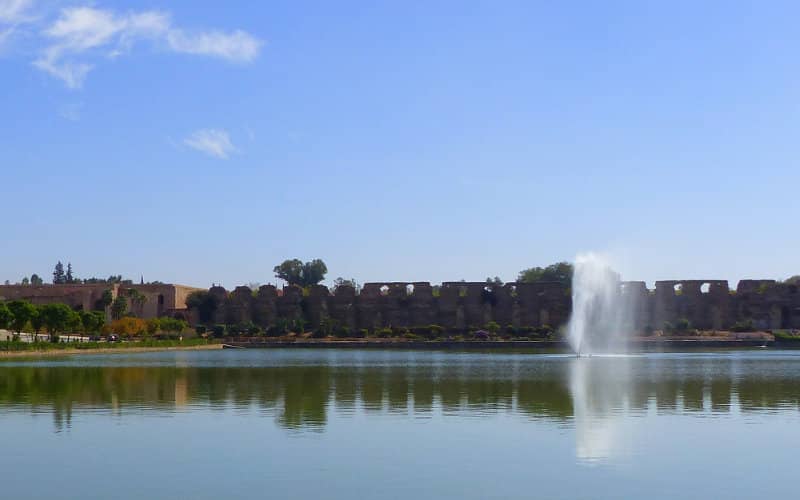Morocco’s Fès-Meknès Region Launches Billion-Dirham Water Crisis Programs

Faced with the drastic drop in water resources in the dams of the Fès-Meknès Region, two programs have been set up by the supervisory ministry, the implementation of which is estimated at several billion dirhams.
The situation is worrying in the Fès-Meknès region for several years. With a fill rate varying between 21.4% and 69%, the dams are indeed recording the lowest levels in several years, report Les Inspirations Éco.
Thus, the Ministry of Energy, Mines and Environment has launched two major programs to improve water resources. The first, called the "2020-2027 National Program for Drinking Water Supply and Irrigation", was chaired on January 13, 2020 by King Mohammed VI, requiring a total budget of 115.4 billion dirhams, of which 12 billion dirhams will be devoted to the Fès-Meknès Region. The second, called the "2020-2050 National Water Program", will benefit from a budget of around 380 billion dirhams. According to the ministry, these two initiatives should ultimately make it possible to reach a storage capacity of 32 million m3 of water, compared to 18.5 million m3 currently.
In total, 2 dams, including 4 classified in the "High Capacity" category, will be built in this region for an envelope of 6.7 billion dirhams, the ministry estimated. These achievements will allow "an improvement in the water resources of the region by 1,287 million m3," say the competent authorities. By 2027, which will mark the end of the program, the storage capacity of the Sebou basin will increase from 5,549 Mm3 to more than 8 Mm3, it is assured.
The construction of these dams will be very useful because 6.2 million inhabitants, including 30% living in the Saïss plain area grouping the cities of Fès, Meknès and a dozen urban centers, will benefit from it.
With an area of 40,000 km2, the Sebou basin, which contains 30% of the country’s surface water resources and 25% of the potential of groundwater, provides significant added value to the Kingdom’s economy. Here in particular, in addition to the agri-food industry made up of olive oil (60% of national production) and sugar (50%), there are also several important agricultural activities on 1.8 million hectares, including 357,000 ha irrigated, indicates the same source, adding that the basin also has a highly developed industrial activity with units that are likely to compromise its survival.
Related Articles
-

Ambitious Gibraltar Tunnel Project Faces Seismic Challenges and 2040 Horizon
7 September 2025
-

Culinary Controversy Erupts: Moroccan "Tanjia" Dish Claimed as Algerian, Sparking Online Outrage
7 September 2025
-

Hirak Leader Zefzafi Attends Father’s Funeral Amid Calls for Royal Pardon
7 September 2025
-

Tax Crackdown Rocks Morocco’s Real Estate: Developers Face Audits Over Cash Schemes
7 September 2025
-

Morocco’s $38 Billion Infrastructure Overhaul: Paving the Way for Regional Dominance
7 September 2025